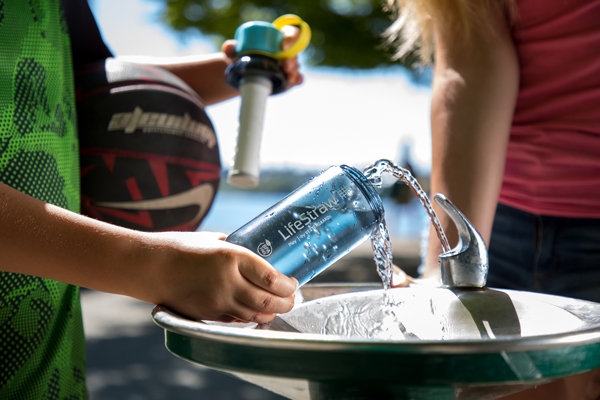- Fragile Planet Offers a Nighttime Wildlife Experience
- Falcons Soccer Off & Running
- Cameron County Receives Funds to Improve Two Parks
- Falcons Complete First Half of 32-6A
- School District to Help out Victims of California Wildfires
- Sand Castle Days Continued Despite Unexpected Weather
- Ready for District
- Discussion of Garbage Dumpster Rates, Agreements Between State & City on Highway Regulations, and More
- 31st Annual Shrimp Cook-Off is Right Around the Corner
- LFHS Cross Country
What to Know About Your Drinking Water
- Updated: March 30, 2018
(StatePoint) Having clean, uncontaminated water to drink at home and on-the-go is one of the most essential components to keeping your family safe and healthy.
Unfortunately, safe water is not necessarily a given. A recent study, published by the Proceedings of the National Academy of Sciences, found that in 2015, nearly 21 million people relied on community water systems that violated health-based quality standards. What’s more, the risks to your tap water are heightened during special circumstances like natural disasters and other emergencies.
To help ensure you are hydrating healthfully all the time — at home, in your community, on trips or in emergencies – consider investing in an easy-to-maintain water filtration device that can be used anywhere in order to improve water quality.
One example is LifeStraw, first introduced for people in developing countries without access to safe water and for victims following natural disasters. The company now makes a range of water filters and purifiers designed for uses like emergency preparedness, outdoor recreation, travel and everyday hydration.
The refillable LifeStraw Go 2-Stage water bottle features a built-in filter, and removes 99.9999 percent of waterborne bacteria (including E. coli and salmonella), 99.999 percent of protozoa while also reducing chlorine organic chemical matter and bad taste. Suitable for kids, the LifeStraw Play model, a 10-oz water bottle designed for everyday use, incorporates the same technology with a sturdy kid-friendly leak-proof design. LifeStraw is available online and at your local Walmart, Target and Sam’s Club.
What’s great is this is also a company that gives back — for every LifeStraw product purchased, a school child in a community in need receives safe water for an entire school year. So far, the program has supported more than one million school children.
Keep in mind that access to clean water is a persistent and global issue. By 2050, at least one in four people is likely to live in a country affected by chronic or recurring shortages of fresh water, according to the United Nations. This highlights the growing need to take precautions both at home and when you travel, and to invest in products that give back.
To do everything you can to keep your family healthy and safe, start by taking steps to improve the water you drink.

